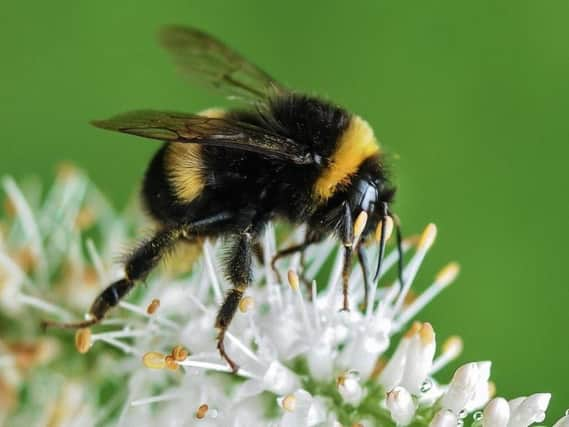Brits urged to 'save the bees' - six ways you can help


Outdoors experts at GardenBuildingsDirect.co.uk have compiled a helpful guide, encouraging green fingered homeowners to do their part in protecting these important insects.
Bees and other pollinating bugs play a vital role in our ecosystems, as a third of all consumed food is dependent on them.
Advertisement
Hide AdAdvertisement
Hide AdThe world has seen a slow but steady decline in number of bees since the 90s due to the widespread use of toxic pesticides, which can’t differentiate between ‘good’ and ‘bad' insects.
Climate change has also dealt a devastating blow to the global bee population, as some species don’t cope well with very hot temperatures – they literally overheat.
Pollinating by hand is an arduous task which could cost UK farmers over a billion pounds yearly, leading to a huge increase in food costs that are also low quality and filled with chemicals.
A spokesperson for GardenBuildingsDirect.co.uk said: “The role of bees within our eco-system is incredibly important and the worldwide decline we have seen is cause for serious concern.
Advertisement
Hide AdAdvertisement
Hide Ad“Every single Brit should do their part, no matter how small, in cultivating the population of our buzzing friends, as without them our ecosystem would literally fall apart.
“By following our simple guide and ingraining a few key steps into our lifestyle, you can make the world of difference.”
Here is GardenBuildingsDirect.co.uk ’s guide on how to save the bees:
1. Picking plants
Certain plants are much more likely to attract our bees to the garden, so do some research before you plant to find the perfect match. Lavender, oregano and basil all produce lots of nectar and will be covered in happy, hungry bees.
2. Avoid pesticide
Advertisement
Hide AdAdvertisement
Hide AdThe majority of insects are not harmful and there is no place for industrial chemicals in the garden, as some pesticides will remain embedded into the soil affecting other wildlife in the long term.
Green fingered Brits should always be wary of using the toxins even for casual use unless absolutely necessary.
3. Choosing honey
Only purchase raw and locally made honey. This will encourage those producing honey to shift their focus and energy towards ensuring that honey is produced ethically.
4. Do not weed
Weeds can be a nuisance however they do have their purpose. Plants such as dandelions are a brilliant source of food for bees, especially in early spring as there is only a limited range of sources available.
5. Quenching thirst
Advertisement
Hide AdAdvertisement
Hide AdEven those with limited space can do their part by installing a small water basin for bees to satisfy thirst during the heights of summer. Just remember to add a couple of stones and floating objects such as a cork so the bees don’t drown.
6. Keeping the bees
For Brits who really want to invest in saving bees, they could look at picking up a new hobby – beekeeping. Do plenty of research and ensure preparation is done beforehand. Give bees a home and produce organic and locally made honey for all to enjoy.